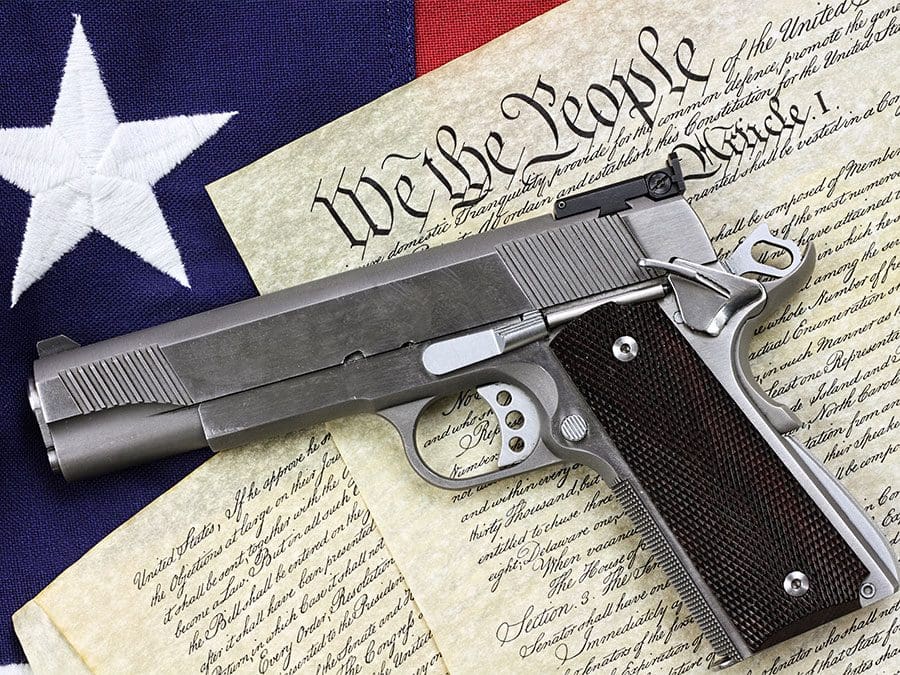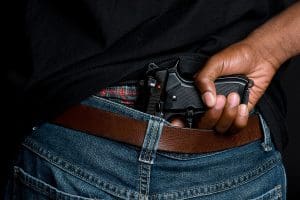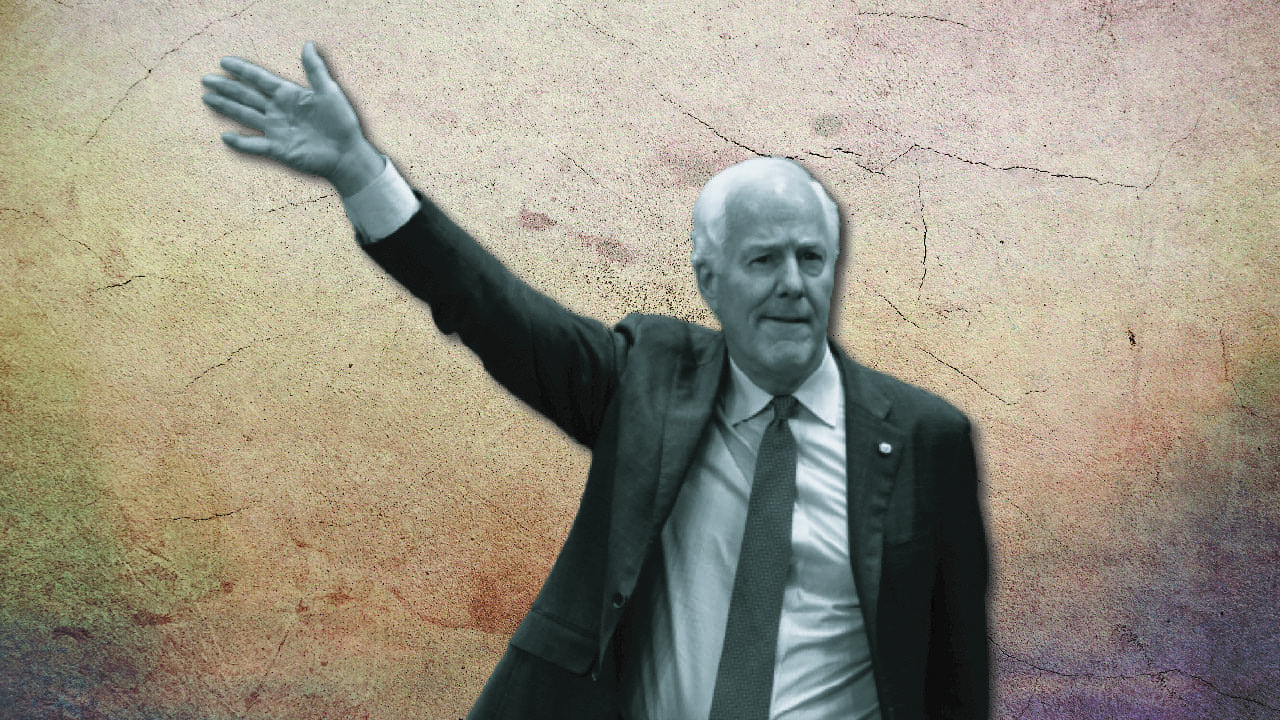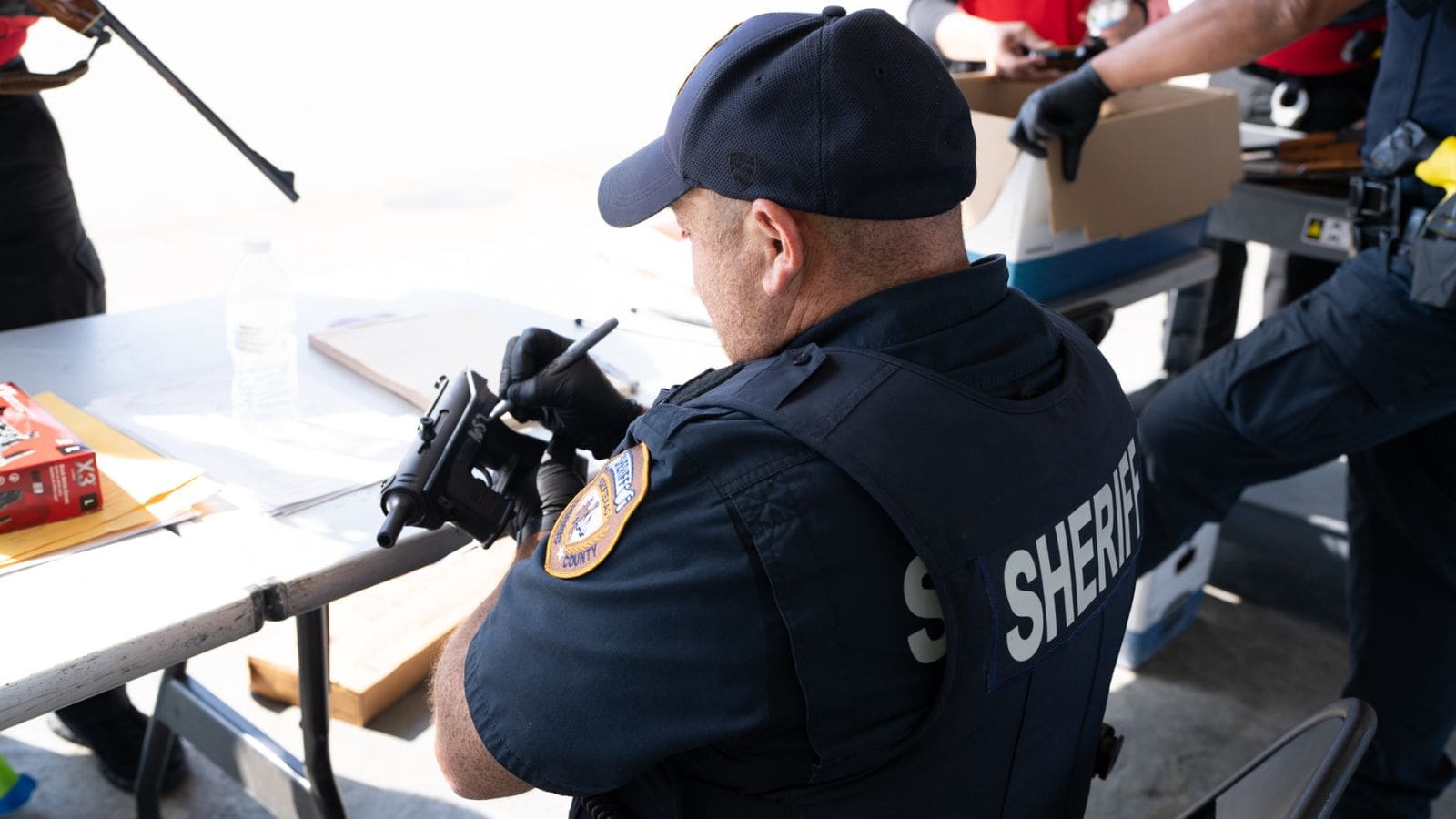What limits—if any—should the government place on our Second Amendment rights?
Currently, federal law mandates that persons convicted of a crime punishable by imprisonment for more than one year—typically felony offenses—automatically lose their right to own or possess firearms and ammunition. Felony offenses constitute a wide variety of crimes and vary from state to state; in Texas, for example, writing a hot check for more than $2,500.00 can be classified as felony theft.
Restrictions on Second Amendment rights have slowly evolved. In 1938, Congress restricted Second Amendment rights for convictions defined as “crimes of violence” like murder, rape, assault, burglary, and kidnapping. Later, in the 1960s, Congress replaced “crime of violence” with “crime punishable by imprisonment for a term exceeding one year.”
Today, felony convictions trigger the firearm ban regardless of whether the crimes are accompanied by acts of violence.
And while acknowledging that crimes are not victimless, it’s reasonable to recognize that not all felony offenses are necessarily violent or dangerous.
While a violent and dangerous felon might not be the best-suited challenger to the current felony firearm ban, consider a person convicted of tax fraud or writing a hot check. Should all felons be dispossessed from gun ownership, or just those that are violent and dangerous?
It is these nonviolent felons that warrant a second look at the current, broad Second Amendment firearm ban. And with several Second Amendment cases now docketed, the United States Supreme Court has an opportunity to weigh in.
Just before Thanksgiving of 2020, the Third Circuit issued an opinion in Folajtar v. The Attorney General of the United States—a case described by Professor Jonathan Turley as so perfectly tailored for the current Supreme Court, the only thing missing is a mailing label directly addressed to Justice Amy Coney Barrett.
In Folajtar, plaintiff Lisa Folajtar was denied the right to own a firearm as a result of a 2011 felony conviction for providing false statements on her federal tax returns. She successfully completed her probation and has since paid restitution.
The dissenting opinion from the Third Circuit Court points out that while Lisa Folajtar is a felon, she is certainly nonviolent and certainly not dangerous. Lisa Folajtar, like Martha Stewart, joins a large list of nonviolent persons with lifelong bans on their Second Amendment rights.
After the unfavorable lower court ruling, Lisa Folajtar filed a petition with the United States Supreme Court on December 11, 2020, asking the high court to consider the constitutionality of the federal felony firearm ban. The case is pending, and the government has until mid-March to file its response to Lisa Folajtar’s petition.
Along with the Folajtar case, the high court has a similar Second Amendment case docketed. Holloway v. Rosen, filed December 3, asks the Court to decide the constitutionality of the federal firearm ban on a non-felon convicted of a DUI in 2005.
Under this nuanced federal law, even though plaintiff Holloway’s DUI was classified as a misdemeanor under state law, his conviction falls under the federal firearm ban.
Though plaintiff Holloway’s crime may arguably be less sympathetic than plaintiff Folajtar’s, both cases present important Second Amendment issues for the Court to consider and clarify. Namely, to what extent can the government limit Second Amendment rights for persons convicted of certain crimes? The government has until March to file its response in Holloway.
The Supreme Court has a reluctant history with the Second Amendment, with several years passing since the last two decisions. In 2008, the Court decided the landmark case, District of Columbia v. Heller, affirming the right of individuals to possess firearms in their homes for lawful purposes. And in 2010, the Court decided McDonald v. City of Chicago, holding that the Second Amendment applies to both state and local governments.
And although the Court has not decided a Second Amendment case in more than 10 years, it was poised to in 2019—and what happened next is extraordinary.
After granting review in a case brought by the New York State Rifle and Pistol Club challenging a city ordinance restricting gun owners from transporting their guns except to and from the city’s seven gun ranges (all but one range was a private range, allowing only members and their guests), the Supreme Court received a surprisingly antagonistic brief from five senators—Sens. Sheldon Whitehouse, Mazie Hirono, Richard Blumenthal, Richard Durbin, and Kirsten Gillibrand—insisting the Court decline to hear the case.
More threat than brief, this filing concluded with the following warning: “The Supreme Court is not well. And the people know it. Perhaps the Court can heal itself before the public demands it be restructured in order to reduce the influence of politics.”
While common for outside organizations and interested persons to submit amicus briefs, or “friend of the court briefs,” the brief that the senators submitted to the Court was striking and anything but friendly, prompting a prominent publication to refer to this submission as an “enemy of the court brief.”
Even Justice Samuel Alito seemed unnerved by this audacity, mentioning it during his keynote speech at the 2020 Federalist Society’s National Lawyers Convention. During his speech, Justice Alito noted the importance of respect that each branch should have for the others, with any attempts to interfere with the separation of powers being unacceptable and “an affront to the Constitution and the rule of law.”
Justice Alito also warned that the Second Amendment is in danger of becoming a “second-tier constitutional right.”
Ultimately, the Court decided not to hear the 2019 New York State Rifle and Pistol Club case, basing the denial on mootness grounds (although Justices Alito, Gorsuch, and Thomas wrote that they supported allowing the case to proceed to the merits).
But with Justice Barrett now added to the Court, there is hope that the Court will have enough votes to take on new Second Amendment issues. Such optimism is based on Justice Barrett’s dissent in the 2019 case Kanter v. Barr, authored during her tenure on the Seventh Circuit Court of Appeals.
Justice Barrett has also publicly stated that her dissent in Kanter was one of her most important opinions.
Rickey Kanter, like Lisa Folajtar, was a convicted nonviolent felon challenging the current law that stripped his Second Amendment rights. And like plaintiff Kanter, plaintiffs Folajtar and Holloway do not dispute their convictions or punishment but focus their challenge on the long-term effects their convictions have on their constitutional right to bear arms.
Justice Barrett has made her views known, writing that “[h]istory is consistent with common sense: it demonstrates that legislatures have the power to prohibit dangerous people from possessing guns. But that power extends only to people who are dangerous. Founding-era legislatures did not strip felons of the right to bear arms simply because of their status as felons.” Kanter v. Barr, 919 F. 3d 437, 450 (7th Cir. 2019) (Barrett, J., dissenting).
With the current, chaotic political climate, along with boorish behavior from certain congresspersons the last time the Court decided to hear a Second Amendment case, it will be interesting to read any future “friend of the court” briefs that may be submitted.
Echoing the frustrations of millions of Americans—and acknowledging the seemingly Sisyphean task facing our nation (and presumably the Court) today—Justice Alito’s parting words from his Federalist Society speech warn not to bring a knife to a gunfight: “For all Americans, standing up for our Constitution and our freedom is work that lies ahead. It will not be easy work.”
This is a commentary published with the author’s permission. If you wish to submit a commentary to Texas Scorecard, please submit your article to submission@texasscorecard.com.





